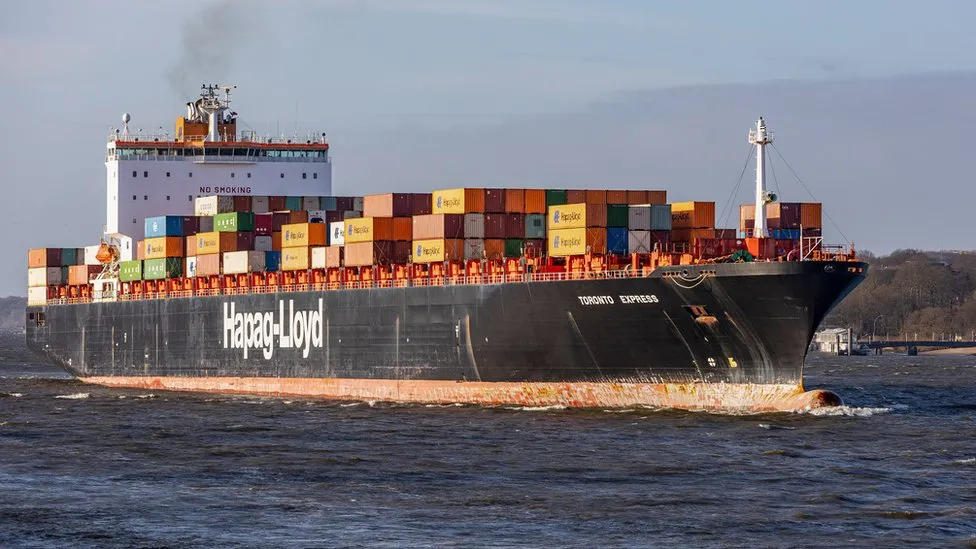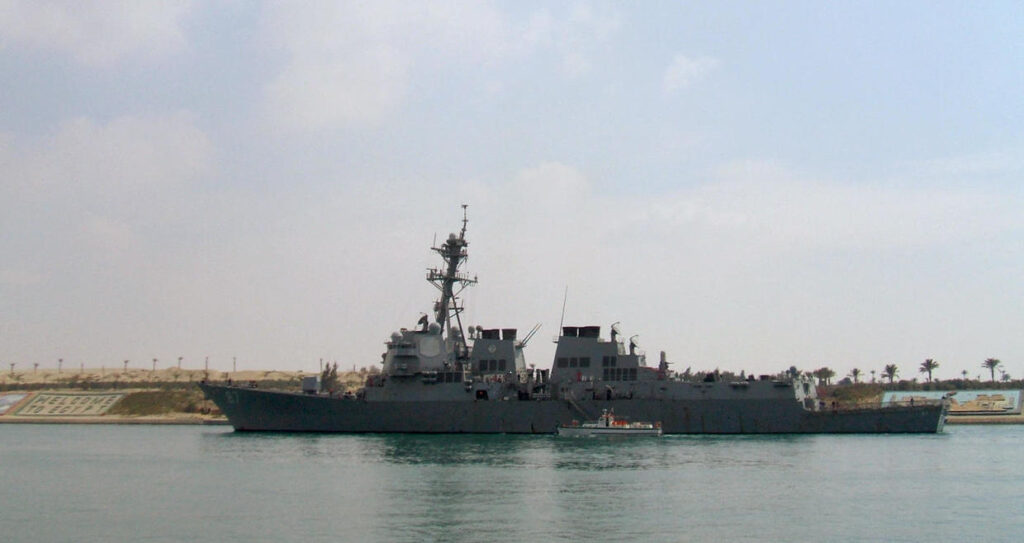Despite a global military operation to maintain security in the region, Hapag-Lloyd, one of the largest shipping companies in the world, has decided not to utilize the Suez Canal again.
Houthi rebels in Yemen, who are supporting Hamas in the Israel-Gaza conflict, have stated that they are aiming to destroy vessels they think are bound for Israel.
In the wake of the attacks, some businesses have ceased using the route.
Danish shipping company Maersk said on Tuesday that it will start operating again in the Red Sea.
However, Hapag-Lloyd of Germany announced that it would continue to reroute its ships via the Cape of Good Hope because it still deems passage through one of the busiest commerce routes in the world to be “too dangerous”. By capacity, the company is the fifth-largest shipping company in the world.
A representative went on to say that it will evaluate its choice on Friday.
Drones and rockets from the Houthi rebels have attacked some ships that are using the Red Sea, which borders Yemen to the south. In an effort to defend commercial ships in the region, over a dozen nations have joined the US-led Prosperity Guardian coalition in retaliation.
The Mediterranean Shipping Company (MSC) reported the day before that one of its container ships was assaulted while sailing the southern Red Sea on its way from Saudi Arabia to Pakistan. This is when Hapag-Lloyd made its declaration.
The Switzerland-based business claimed in a statement that it had notified the coalition naval task force and that it had “engaged in evasive manoeuvres as instructed.”
As per MSC, all crew members were safe and there were no reported injuries.
One of the most significant shipping routes in the world for liquefied natural gas, oil, and consumer products is the Red Sea to Suez Canal.
There are concerns that the supply of commodities transported through the Suez Canal may be disrupted and that prices would rise to offset the increased expenses of transportation due to the 3,500 nautical mile detour around the Cape of Good Hope.
In response to rebel attacks on ships utilizing the route, furniture behemoth Ikea announced that supply of its goods may be delayed. Meanwhile, oil giant BP announced that it will temporarily suspend all crude exports across the Red Sea.
Meanwhile, despite the implementation of security measures, Maersk stated in a statement released on Sunday that “the overall risk in the area is not eliminated at this stage”.
“Maersk will not hesitate to re-evaluate the situation and once again initiate diversion plans if we deem it necessary for the safety of our seafarers,” stated the statement.
Ships sailing to or from the eastern Mediterranean experience delays of up to 18 days; ships sailing to or from Northern Europe experience delays of 10–14 days; and ships sailing the US east coast experience delays of up to 7 days.
The challenges in the region will have an impact on many economies because the route is crucial for facilitating trade between Europe and Africa, despite the fact that some businesses, such as Maersk and France’s CMA CGM, are gradually getting ready to re-use it.
According to Mohamed Ata, an Egyptian analyst with Universal Stock, Egypt would be severely affected by the unrest.
Egypt is struggling with a lack of foreign exchange reserves in the midst of a worldwide recession as a result of the impact on the Suez Canal, which is one of Egypt’s primary sources of foreign currency. “Any disruptions in the canal will have a significant impact on Egypt’s foreign currency earnings, as it is the most crucial waterway globally,” the speaker stated.



